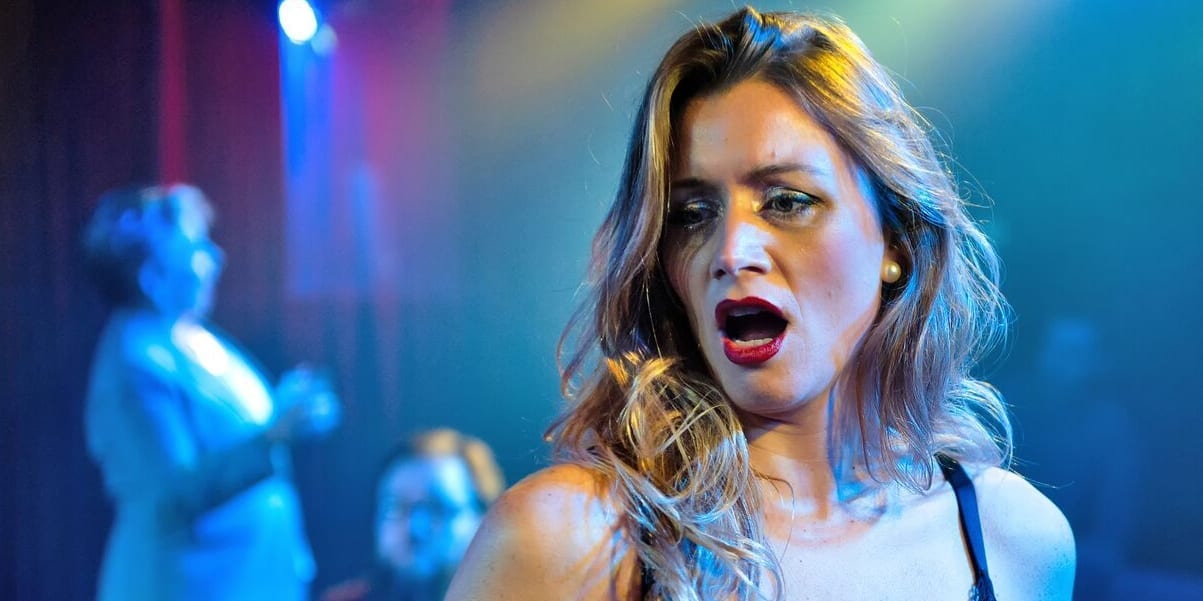The King’s Head team have come up with another modernised stripped-down version of a great operatic classic and it is superb. With only four singers and a piano it is bound to miss out on some moments of Verdi’s sublime score. And the reshaping of the story also leads to some musical losses – we miss the great farewell sung by Violetta to her lover as she leaves to return to her previous life. But the production makes up for this by a new take on the nature of the relationships between Violetta, her naïve young lover, and his hypocrite of a father – and by the emotional impact of being in a small space with a group of actor/singers totally committed to telling their story.
Violetta is a dancer at a sleazy nightclub in Bristol. The local MP, George Sinclair, turns up with his embarrassed son, Elijah. The young man, a budding composer, immediately falls under Violetta’s spell and begs her to leave her debauched life in the strip club and let him ‘save’ her. The club owner Flora tries to dissuade her but Violetta decides to risk everything and follow him. They live together in Violetta’s bedsit until Flora turns up demanding unpaid rent and, when Elijah goes off to find some money, Sinclair turns up to demand that Violetta ends her affair with his son in case the scandal of his visits to the night club/brothel leads to him losing the coming election. Violetta finally gives in to his emotional blackmail. The rest of the story is somewhat different from Verdi’s but even bleaker than the original.
The production is illuminated by a stunning performance in the main role by Emma Walsh. She dominates the show from start to finish. Her singing is exquisite – she nails the famous high E-flat at the end of the first act with ease, and without the excessive volume that is a risk when you put a fine singer in a tiny performing space like the Kings Head. She also carries off the three stages of Violetta’s journey – pole dancer, bullied girlfriend and defeated outcast – in heart-rending style. Alex Haigh, as her gormless young admirer, is at his best as the awkward youngster of the first scene but sounds strained in the higher reaches of the demanding tenor role. Victor Sgarbi blusters his way through as an MP driven by personal ambition that he dresses up with shreds of self-deluding guff about “making a difference”. Grainne Gillis provides an effective brothel owner, as far removed from the original Flora as can be imagined.
The set is best when it portrays the sleazy club – the pole for Violetta’s dancing and tables for the punters, some of whom are conscripted audience members. The whole space is draped with red fringe curtains and creates the illusion of a seedy basement dive. Panaretos Kyriatzidis, who plays the piano, has done a very clever job of transforming Verdi’s score into a form that supports this retelling of the story – for example, the music of the often-irritating dance scene is here transformed into a very effective duet for Violetta and Flora. The lack of Verdi’s strings is a great loss but, on its own terms, the arrangement works well.
This is a very different version of Traviata but one well worth seeing. There are two alternating casts so you might want to see it twice – that’s what I will be doing.

